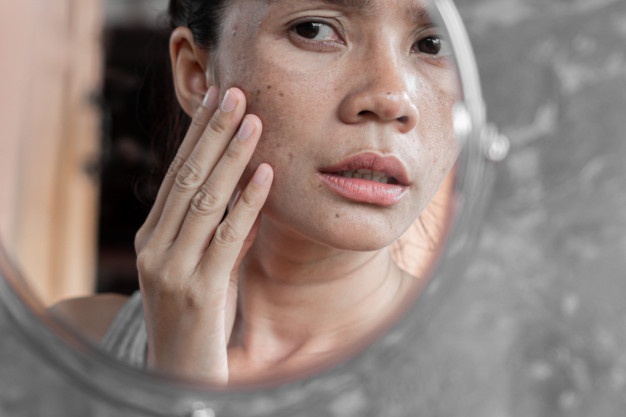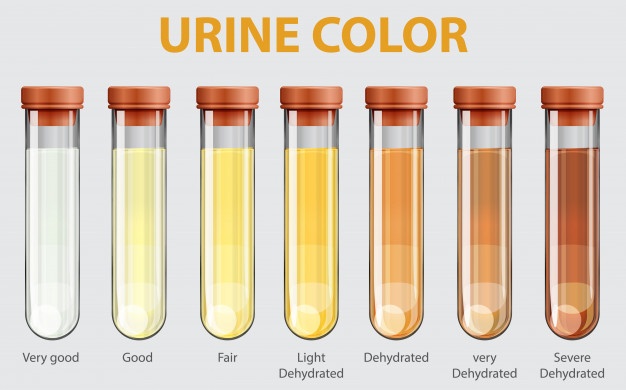
Water makes up 60% of the human body and is needed to help maintain a healthy weight, flush toxins from the body, and produce bodily fluids like saliva. Water also contributes to regular bowel function, optimal muscle performance, and clear, youthful-looking skin. However, failing to drink enough water can cause dehydration and adverse symptoms, including fatigue, headache, weakened immunity, and dry skin.
Here are seven major signs that indicate you may need to start drinking more water to benefit from improved health.
Sugar Cravings

Dehydration interferes with the body’s ability to reach into glucose stores for energy and can trigger cravings for foods high in sugar and carbohydrates. Unusual and sudden cravings for sugary foods like chocolate, donuts, cookies, and candies may indicate that your body is in great need of water—not food. If you’re experiencing sugar cravings or hunger pangs even though you’ve recently eaten, try drinking more water to rehydrate your body and keep cravings at bay.
Fatigue

Not drinking enough water can cause an overall fluid loss in the body. This fluid loss can lead to a decrease in blood volume that puts excess pressure on the heart to deliver oxygen and nutrients to the organs, including the muscles. Lack of water can cause you to experience periods of fatigue and low energy as your body tries to function without enough water. If you’re constantly feeling sluggish and tired despite getting a quality night’s sleep, you may need to boost your water intake.
Constipation

Water promotes good digestion and regular bowel movements by keeping your stool soft and moving it easily through the digestive tract. Not drinking enough water can cause your body to pull water from stool to compensate for fluid loss, leading to harder and firmer stool that is more difficult to pass. If your bowel movements are irregular and infrequent, try drinking more water to loosen your stools and relieve constipation and bloating.
Persistent Bad Breath

Water is essential for saliva production and helps rinse away bacteria so you can maintain healthy teeth and gums. Lack of water inhibits saliva production and causes bacteria to build up on the tongue, teeth, and gums, contributing to bad breath. If you practice good oral hygiene, yet continue suffering from chronic bad breath, it’s possible you may not be drinking enough water. Make an appointment with your doctor if bad breath persists after increasing your water intake to rule out other underlying causes such as gum disease, type 2 diabetes, and liver or kidney problems.
Poor Skin Health

Water hydrates and plumps skin cells to make your skin look brighter, vibrant, and more youthful. However, lack of water can cause skin to lose its plumpness and elasticity—leading to dryness, flakiness, fine lines, wrinkles, and sagging skin. Water even helps reduce acne and other skin problems by flushing harmful toxins from the body. If beauty products and skin treatments are failing to improve the appearance of your skin, drink more water to achieve a more youthful appearance and to reduce or improve skin problems.
Frequent illness

Water helps flush toxins, waste, and bacteria from the body to fight disease and infection as well as strengthens your immune system so you become sick less frequently. If it seems as though you’re always getting sick, you may need to start drinking more water to keep your body free of toxins and functioning at an optimal level. Since lack of water also causes fatigue, you may tend to be less physically active—another risk factor for weakened immunity.
Decreased Urination

When your body is dehydrated, the kidneys retain as much fluid as possible to maintain their function. This can lead to decreased urination—one of the most common signs of low water intake. Lack of water can cause your urine to become darker in color, stronger in odor, and cloudier in appearance. You may also face a higher risk of urinary tract infection when your body lacks enough water to flush out toxins and bacteria. You’ll know you’re drinking enough water when you start urinating more frequently and the urine is clearer, lighter in color, and far less odorous.
Other side effects associated with not drinking enough water can include;
- Bronchopulmonary disorders (exercise-induced asthma): Hydration status and the fluid in the lungs and airway play an important role in proper airway clearance.
- Rise in body temperature: Sweat is how your body naturally cools itself and stabilizes its internal temperature. Without enough water, your body cannot properly sweat and as a result, your core temperature increases, which can make you, feel hot.
- Drop in blood pressure: dehydration occurs largely because of a decrease in the volume of plasma—which is the liquid part of the blood that contains proteins, and as a result, blood pressure also drops.
- Nausea or vomiting: In response to the rise in internal body temperature, a decrease in blood pressure, and an increase in heart rate, you could become nauseous or even begin throwing up.
- Muscle cramp: Sweating may cause a decrease in both plasma volume and electrolyte levels (think sodium and potassium), which is associated with exercise-induced muscle cramps.
Avoid all of these side effects by carrying around a reusable water bottle with you when you go out. Also bear in mind that there are plenty of other ways you can stay hydrated aside from drinking water alone.

